Buryat

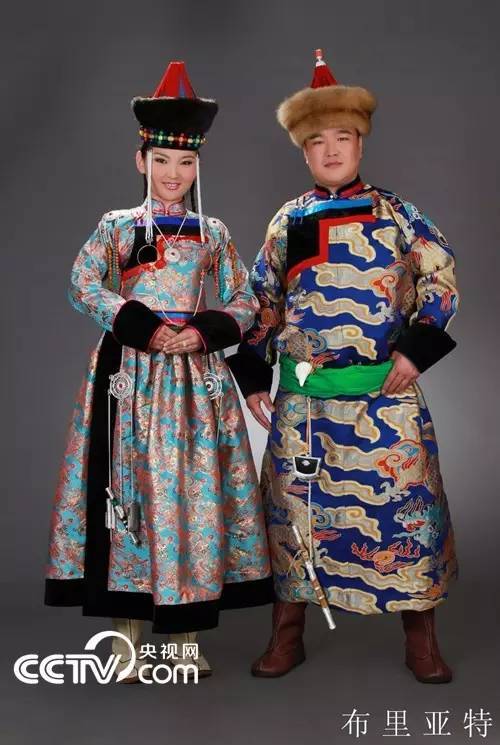
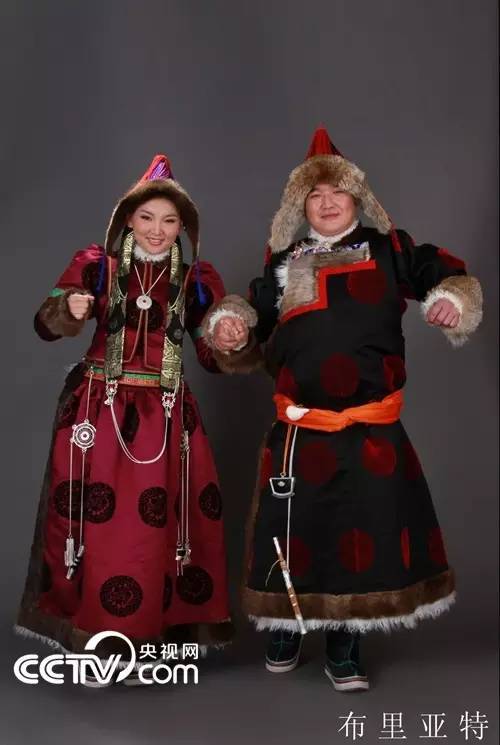
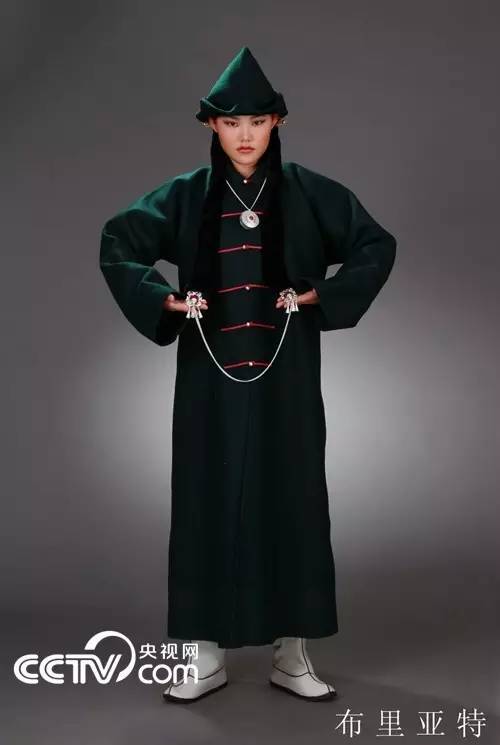
Origin of the Tribe
As one of the ancient Mongolian tribes, the Buryat have resided and herded in the east region of Baikal Lake since the 13th century. With increasing influence fromTsarist Russia, Buryats inhabiting the east of Baikal Lake and Udy River basin fell beneath the rule of the Tsarist Russia in the middle of the 17th century, while their fellow tribal men residing in the Shilka River basin became subordinate to the Khalkha-Mongolian. Today, the Buryat Mongols living in Russia, Mongolia and the Hulunbuir of the Inner Mongolia autonomous region originate from the tribe mentioned above.
Features of the Clothing
Under the longlasting influence of Russian culture, the style of Buryat costumes are distinguished from others by their Europeanized features. However, red-tassels hats and robes with the rims in three colors still dominate their tribal characteristics. There are stitches on the top of red tassels hats, standing for different paternal clans. The red tassels represent the sun, implying all the members in the clan are blessed forever. Likewise, the tri-color borders also have significant meanings: the blue one stands for the unlimited sky; the black one denotes the rich and vast ground;and the red signals the vitality of the tribe. Inside the rims are stitched three strands of mane from male camels, which is used to ward off evil spirits. Men usually have yellow waistbands while women often wear green ones. There are pleats on the shoulder parts of married women’s robes.
Dressing Customs
Maids usually wear the robes with decorative bands in three colors. Married women match their robes with waistcoats, except for in summer. Their robes, on important occasions, must be worn in sets with hats, headgear and boots. In spring, summer and autumn, Buryat people like wearing wool robes (Monglian: chob-a) with hats of the same texture (Mongolian: yudeng malagai). On most occasions, the hats can be folded into different shapes according to their preferences.
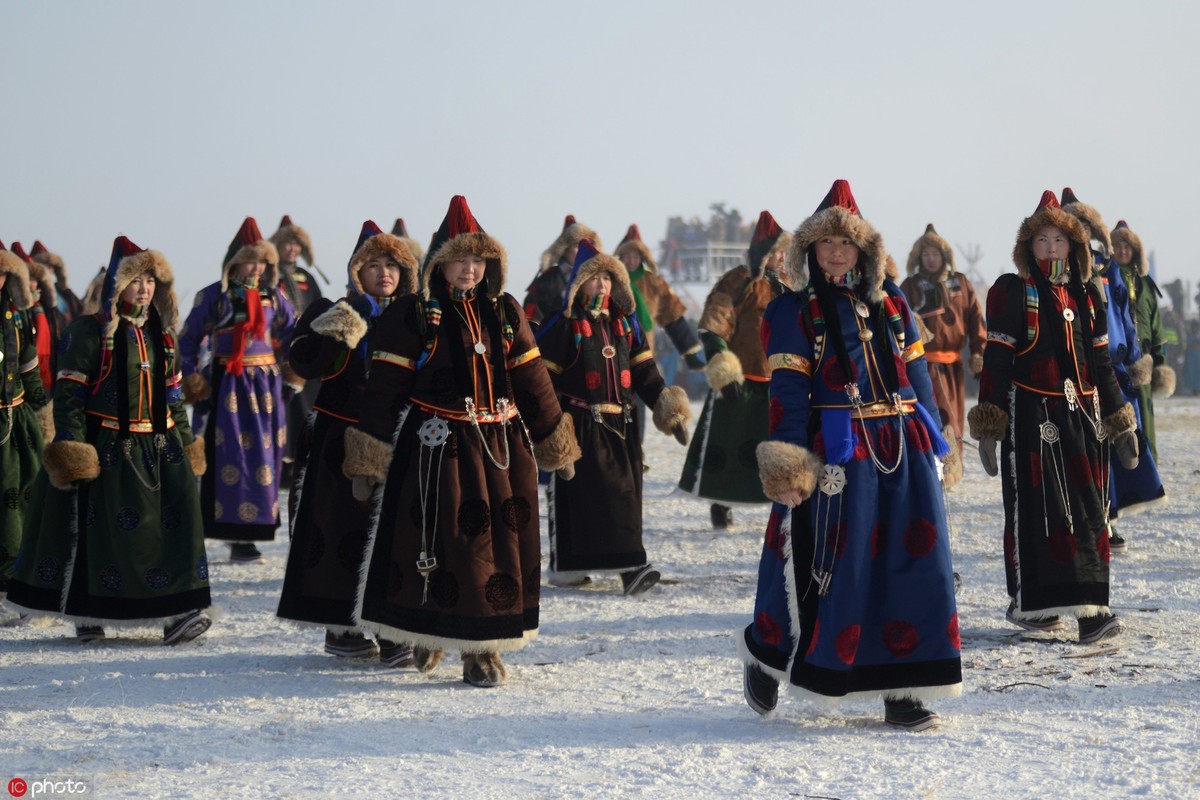
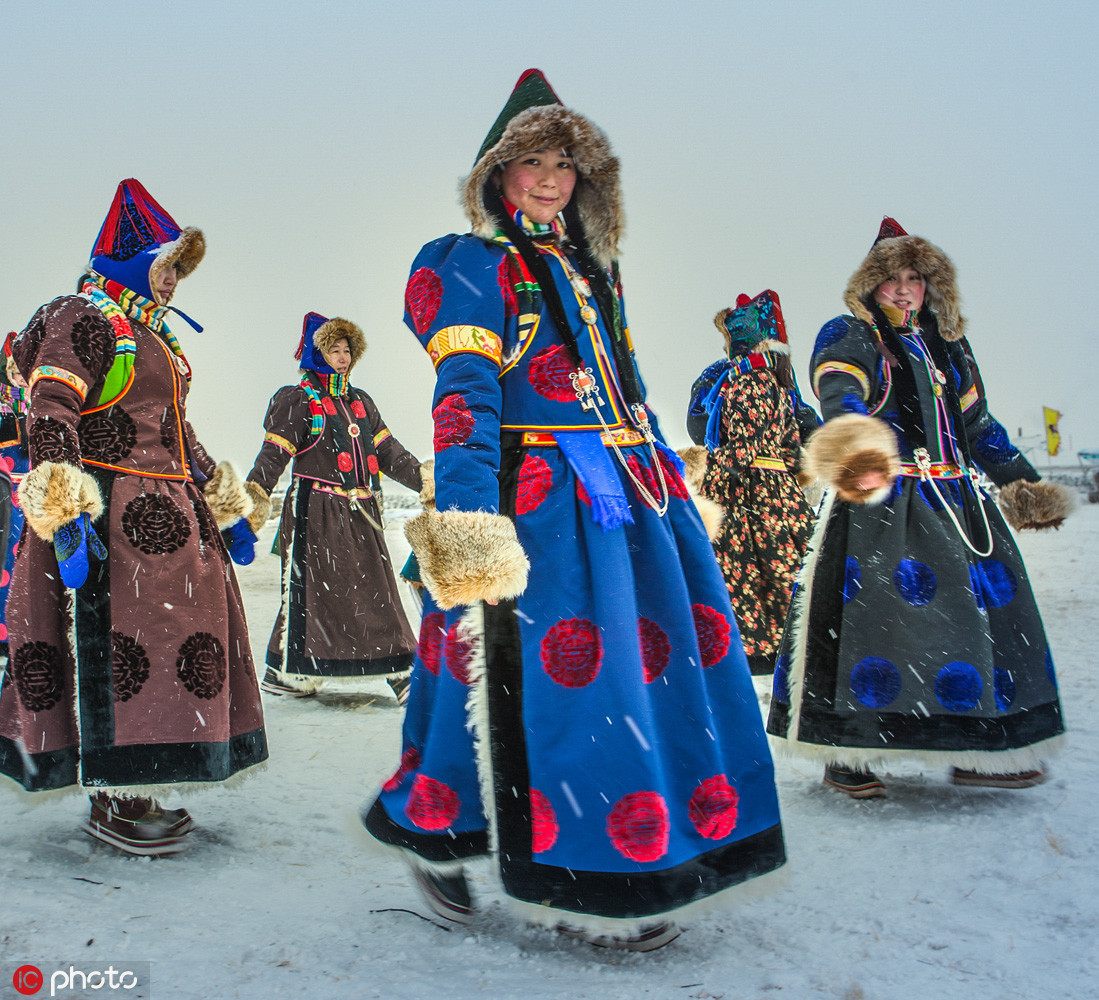
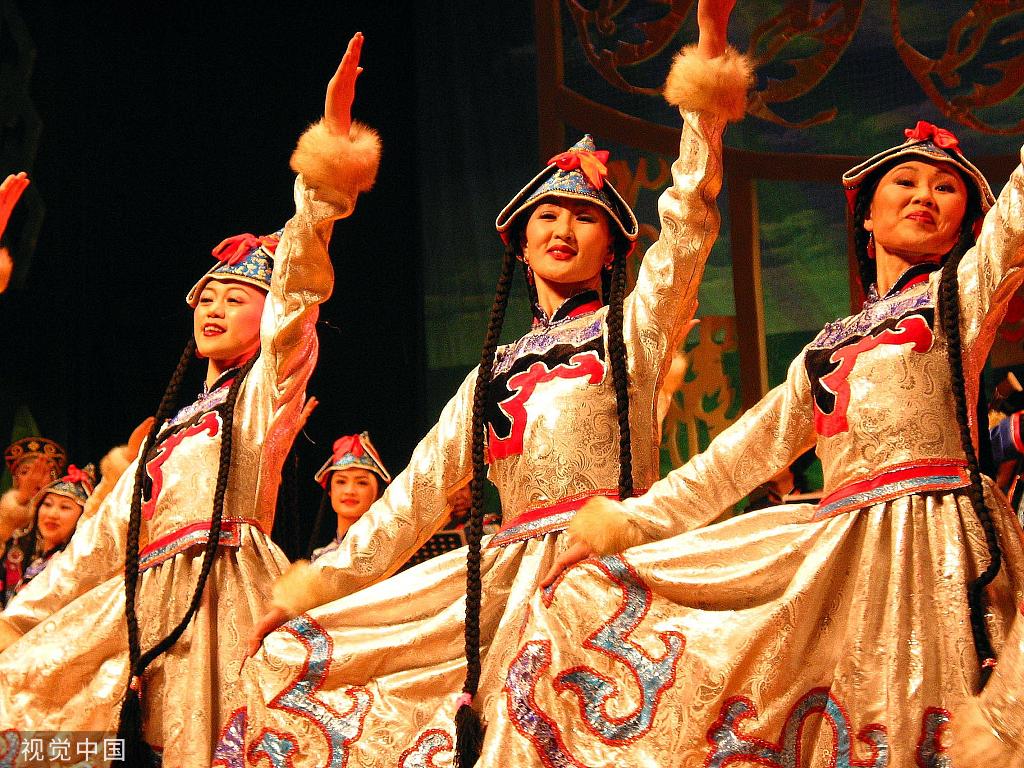
Features
 Cultural Creative Products
2025 calendar celebrates Palace Museum's 100th anniversary
Cultural Creative Products
2025 calendar celebrates Palace Museum's 100th anniversary
 Museum Treasures
Henan Museum’s treasures don winter sweaters
Museum Treasures
Henan Museum’s treasures don winter sweaters


